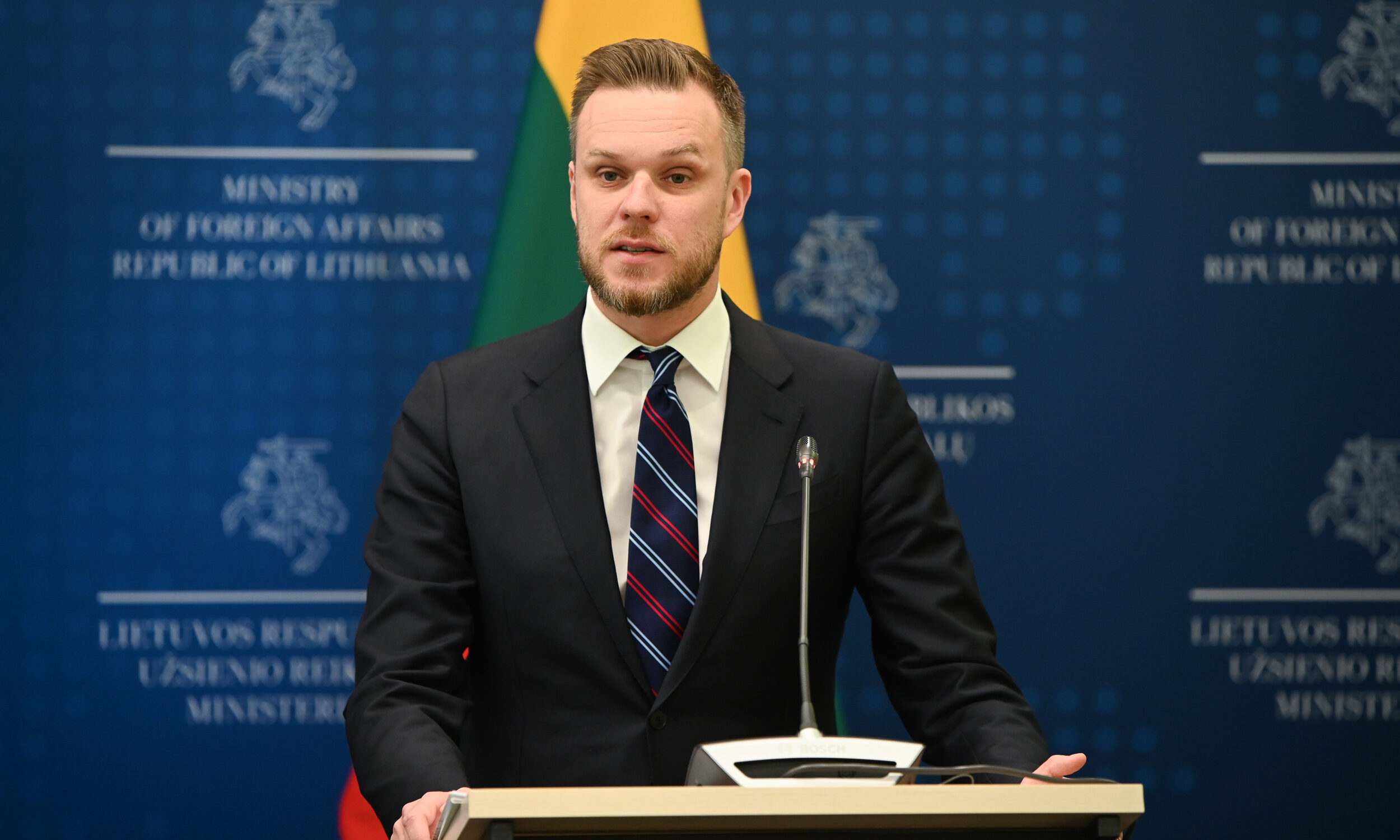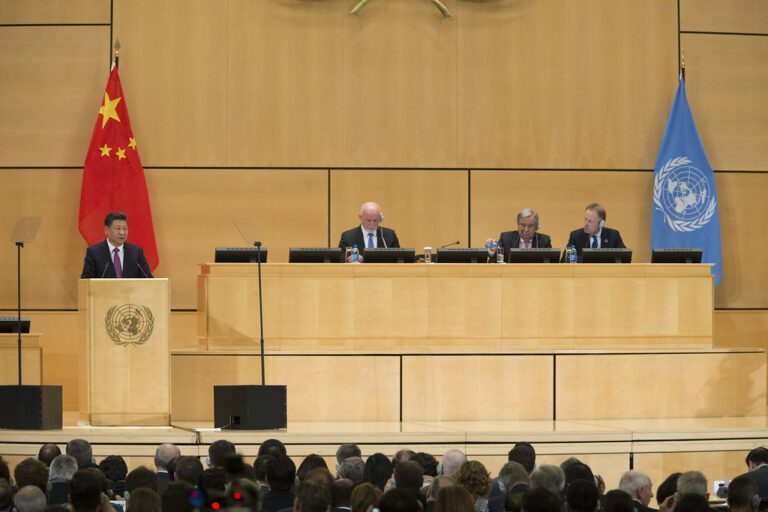
Regardless of China’s attempts to cast the Baltics as getting upset over nothing, the scandalous comments on sovereignty of ex-Soviet nations by the Chinese Ambassador to France, Lu Shaye, created a “we told you so” moment for Estonia, Latvia, and Lithuania. Again.
The French TV interview with China’s Ambassador to France, Lu Shaye, was already raising eyebrows real-time as the diplomat hesitated to respond to the host’s request to clarify the ambassador’s, and implicitly, China’s position: “Is Crimea, in your eyes, Ukraine?” After a short pause, Lu Shaye snickered and said: “It depends on how one perceives this problem. There’s history, isn’t it?”
What happened in the next seconds caused an international scandal: to drive his point on Ukraine home, the ambassador questioned the sovereignty of all countries that re-established or established independence as the USSR collapsed, as he said: “under the international law, even these countries of the ex-Soviet Union don’t have the effective status”.
It does not take a map to follow this argument to its logical conclusion: if those countries are not “real” members of the international community and the international law does not apply to them, attacking them then does not contradict the national sovereignty principle, as habitually defended by Beijing. Russia is thus, in effect, also well within rights to annex Crimea and wage a war on Ukraine.
Ambassador Lu’s statement triggered a harsh reaction by Lithuania, Estonia, and Latvia, and indeed, across whole Europe. China soon entered damage control mode by deleting the interview from the embassy’s WeChat account, repeating its recognition of the post-Soviet states’ territorial sovereignty, and spinning the incident as a no-big-deal blown out of proportion by the Baltic capitals.
However, Beijing’s approach to focus on the Baltics fails to acknowledge the real implications of Ambassador Lu’s comments. The Eastern members of the EU and NATO have long since been weary of the idea to enlist China’s help in countering Russia’s war in Ukraine. The Chinese top diplomat just created even more doubt regarding China’s capacity to act as a constructive force in stopping Russia’s aggression, providing the more transatlantic-minded countries, including the Baltics, with a ‘we told you so’ moment.
The Baltic Red Line
Amusingly, Lu Shaye’s remarks, even when taken at face value, concern the Baltic states the least, as their independence had been restored, not established, upon the fall of the Soviet Union. That is also why the Baltic states take offense also at being viewed through a post-Soviet lens: to them, the Soviet period was an age of occupation and stolen statehood, not an exercise in nation-building. In this case, however, even if not explicitly named by Lu Shaye, the three nations reacted.
All three countries’ foreign ministries came out with statements calling on China to clarify and retract the statements. Both Latvia and Estonia stuck to publicly communicating outrage to the local embassies. The Lithuanian Foreign Minister Gabrielius Landsbergis went further, tying the comments by Lu Shaye to China’s ambition to play a mediating role in Ukraine – and indirectly – to the hope expressed by Emmanuel Macron and some other European voices that China could pressure Russia to stop the war.
“If anyone is still wondering why the Baltic States don’t trust China to “broker peace in Ukraine”, here’s a Chinese ambassador arguing that Crimea is Russian and our countries’ borders have no legal basis,” argued Landsbergis.
His Latvian counterpart, Edgars Rinkēvičs, reported that in coordination with Lithuania and Estonia, the charges d’affaires of the three Chinese Embassies were summoned to explain Lu’s statement. According to the press release following the meeting, the Latvian side did not mince words, calling such statements not conducive to further EU-China dialogue.
Saved by the weekend, Beijing waited until the regular Foreign Ministry press conference on Monday, April 24, to reiterate the official Beijing’s position: “As to issues related to territorial sovereignty, China’s position is consistent and clear. China respects all countries’ sovereignty, independence and territorial integrity and upholds the purposes and principles of the UN Charter. After the Soviet Union dissolved, China was one of the first countries that established diplomatic ties with the countries concerned”.
The Chinese diplomats, allegedly, also repeated the same wording during the Monday visits to the Baltic foreign ministries, hinting that the Baltic states were blowing the issue out of proportion. Having had time to think, the Chinese foreign policy establishment came up with a communications strategy that turned the issue around to be the Baltics’ fault, as echoed in this take by the Global Times: “Some European countries with dominant anti-China political forces will use any opportunity to treat China with ideological bias, smearing it and creating more divisions using excuses such as hyping the remarks made by Chinese Ambassador to France Lu Shaye.”
The overreaction angle was also employed in the South China Morning Post column by Alex Lo: “The Baltic states have been trying to play damsels in distress every time they provoke an angry response from Beijing, and of course, they always find a sympathetic shoulder to cry on in Brussels and Washington.” The provocation, according to Lo, this time had been the Baltic engagement with Taiwan.
Turning the Tables Not Helpful for Beijing
Downplaying the impact of the controversy is a tall order for China. This could have gone down in history as just another case of a “wolf warrior” diplomat going rogue, perhaps due to individual characteristics and ambitions, or perhaps because of insufficient command of the language he was speaking in, if not for one thing – Emmanuel Macron’s recent visit to China and the off-the-record four-hour long tête-à-tête with Xi Jinping, the gist of which the ambassador had undoubtedly been briefed on. Macron’s message had been perceived as overwhelmingly flattering in China, starting from the plea to help “Russia to come to its senses” rather than strong signals of European resolve, and ending in comments that risk undermining transatlantic unity and the security of Taiwan.
If the Commission President Ursula von der Leyen’s speech before her visit to China had drawn criticism from the Chinese Ambassador to the EU, Fu Cong, then Macron’s statements received nothing but praise. One can speculate that when making his statements, Ambassador Lu appeared confident that he had supporters not just among his Chinese counterparts, but also the French ones.
In any case, due to the wider European context and the timing, Lu Shaye’s TV appearance is not just a Sino-Baltic issue. Even with Beijing playing down the incident and removing the interview from the Embassy’s WeChat account, the episode is bound to have consequences for the European views on China.
First of all, this is not about debating China’s hypothetical support to Russia’s invasion anymore, this is about a Chinese ambassador to a major EU country explicitly stating that sovereign states are not real countries. It would be naive to expect the Baltics to be proponents of ‘business as usual’ with China after this.
Secondly, the emotional aftermath of the scandal will add momentum to the domestic proponents of more engagement with Taiwan, silencing the more pragmatic approaches.
But most importantly, the ambassador’s faux-pas is a point in favor of the US hard-line position on China and a point lost for more reconciliatory voices in the EU. Coming at a time when China rallies international support for its alternative security vision that comes in direct conflict with the US-run security architecture, smaller states dependant on the latter cannot help but wonder if Ambassador Lu’s remarks were an indication of a wider under-the-wraps consensus among Beijing’s foreign policy circles. After all, the ambassador’s comments caused much optimism among the Russian state media.
Trying to cast Lithuania, Latvia and Estonia as overreacting self-serving nations in contrast to the wise, strategically autonomous ‘old Europe’ is not an effective strategy for China to put out this particular fire, and statements of solidarity from across Europe prove this. What the Chinese diplomats often fail to understand, is that the Baltics along with several other post-socialist countries, including Poland and Czechia, small as they may be, do tend to make their voices heard on issues that really matter to them within the transatlantic community. Ignoring their concerns will not serve Beijing well.
Written by
Una Aleksandra Bērziņa-Čerenkova
UCerenkovaDr. Una Aleksandra Bērziņa-Čerenkova is a Research Fellow at CHOICE and Head of the Political Science PhD programme and China Studies Centre at Riga Stradins University, Head of the Asia Programme at the Latvian Institute of International Affairs, a member of CHERN and European Think-tank Network on China (ETNC).


